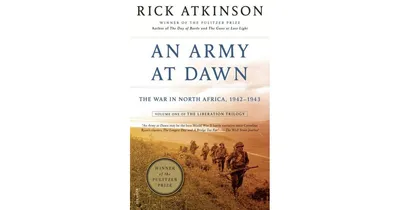Home
Fighting Rommel: The British Imperial Army in North Africa during the Second World War, 1941-1943 / Edition 1
Loading Inventory...
Barnes and Noble
Fighting Rommel: The British Imperial Army in North Africa during the Second World War, 1941-1943 / Edition 1
Current price: $58.99


Barnes and Noble
Fighting Rommel: The British Imperial Army in North Africa during the Second World War, 1941-1943 / Edition 1
Current price: $58.99
Loading Inventory...
Size: OS
*Product Information may vary - to confirm product availability, pricing, and additional information please contact Barnes and Noble
Fighting Rommel
examines how and why some armies innovate under pressure while others do not. Focusing on the learning culture of the British Imperial Forces, it looks at the Allied campaign during the Second World War against the Afrika Korps of Rommel. The volume highlights the hitherto unexplored yet key role of the British Indian Army, the largest volunteer force in the world. It also introduces ‘learning culture’ as a heuristic device. Further, it goes on to analyze military innovation on the battlefield, in victory and defeat.
A major intervention in the study of the Second World War, this book will be indispensable to scholars and researchers of military history, especially British and German, battlefield history, and defence and strategic studies.
examines how and why some armies innovate under pressure while others do not. Focusing on the learning culture of the British Imperial Forces, it looks at the Allied campaign during the Second World War against the Afrika Korps of Rommel. The volume highlights the hitherto unexplored yet key role of the British Indian Army, the largest volunteer force in the world. It also introduces ‘learning culture’ as a heuristic device. Further, it goes on to analyze military innovation on the battlefield, in victory and defeat.
A major intervention in the study of the Second World War, this book will be indispensable to scholars and researchers of military history, especially British and German, battlefield history, and defence and strategic studies.

















